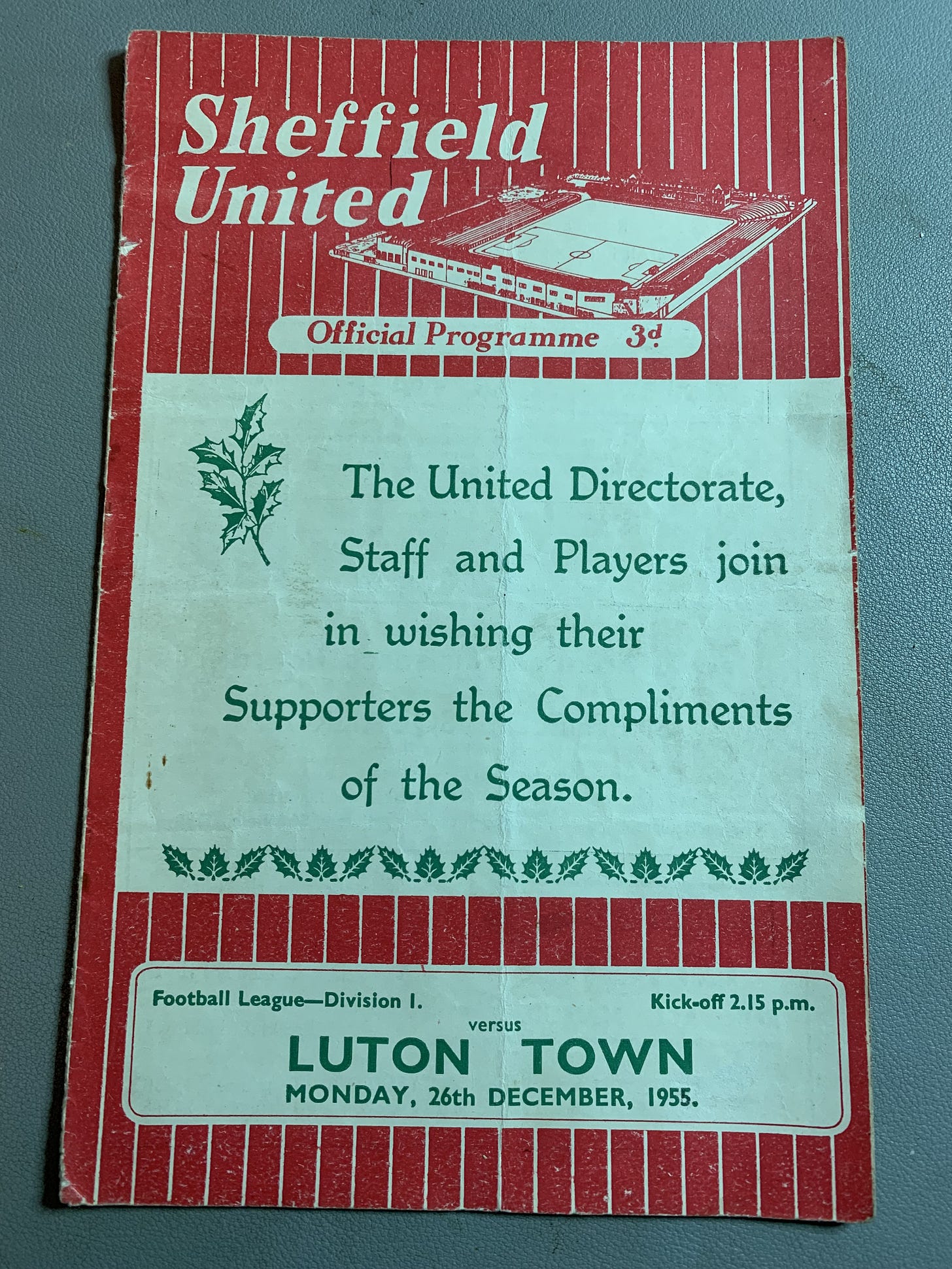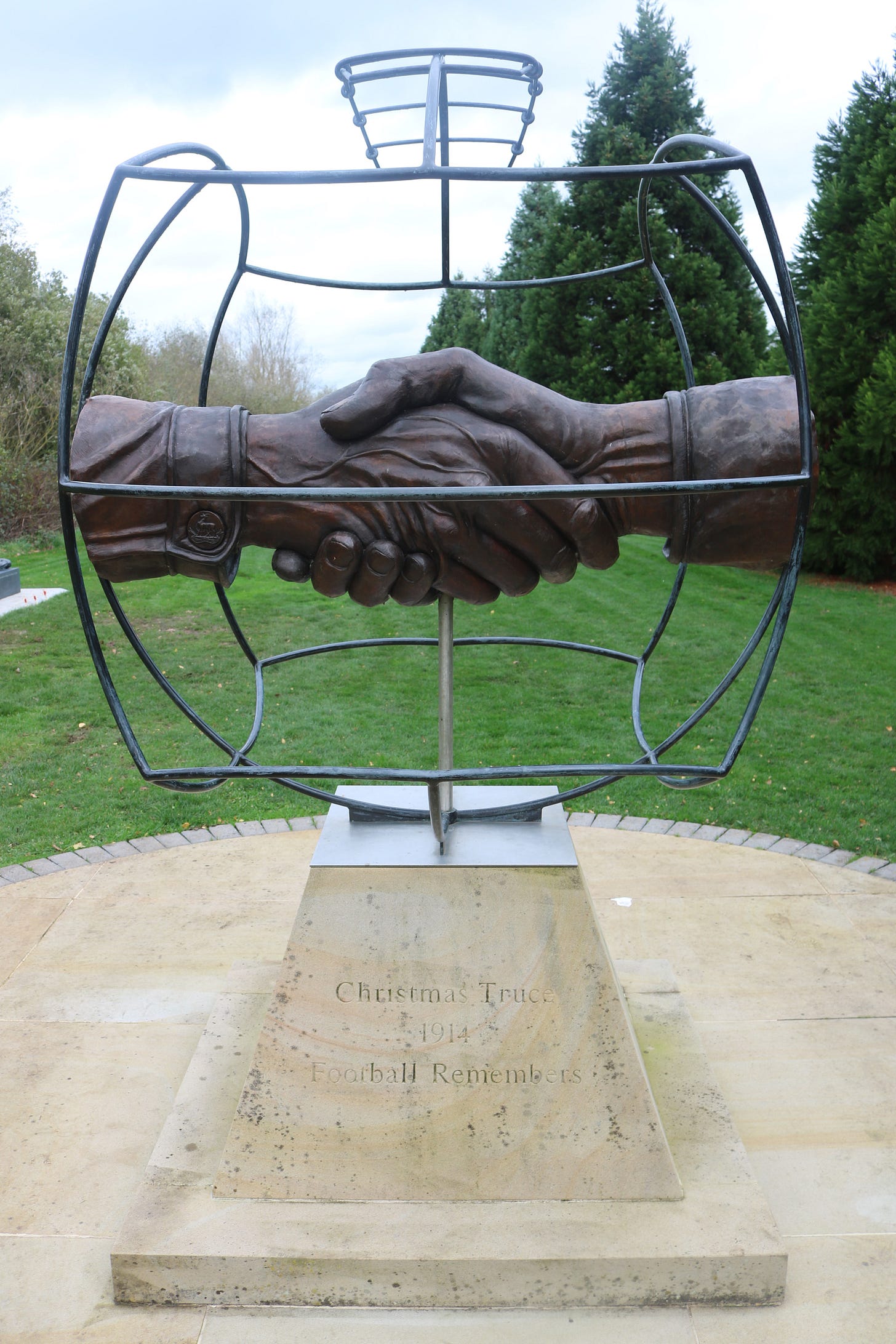The Blades on Christmas Day
Philip Whitaker looks back 70 years to when the festive fixture list usually included a double header with games on Christmas and Boxing Day against the same opponents.
Philip Whitaker
The first English League game on Christmas Day was in 1889 when Preston, who had won the title the previous season without losing a game, hosted Aston Villa.
The final full round of First Division fixtures was in 1957. In 1958 this reduced to three and by 1959 just one at Blackpool where the tradition continued a little longer to provide entertainment for holiday makers. The final game was in 1965 when Blackpool beat Blackburn Rovers 4-2 at Bloomfield with Alan Ball involved in a couple of the goals.
While it seems alien today to play to a game on Christmas Day it was a great tradition, essentially born from boredom. In those days football was mainly a working-class sport and public holidays were traditionally when working class events would take place. Professor Martin Johnes, author of the book Christmas and the British explains that “For the working class, whose residences were often uncomfortable and overcrowded and unappealing, a rare day free from work was reason to take to the streets, not relax at home”.
Perhaps the most famous game on Christmas Day was the Christmas Truce on the Western Front in 1914. The truce happened five months into the war as the fighting lulled for a short period as armies ran out of men and munitions and commanders reconsidered their strategies. In the week leading up to 25 December soldiers from both sides crossed trenches to exchange seasonal greetings and play games of football on both Christmas Eve and Christmas Day.
United didn’t play on Christmas Day in 1914 but on Boxing Day we suffered a “grotesque result” losing 2-1 at home to Blackburn Rovers. In Red, White and Khaki, The Story of the Only Wartime FA Cup Final, Matthew Bell reports that both goals were from long range. One was low and true that gave keeper Gough no chance, but the other was a looping shot that he misjudged and spilled against the post with United defenders protesting furiously that the ball hadn’t crossed the line.
The popularity of the festive game was demonstrated by the massive Boxing Day crowd of 32,000 only a week after just 5,500 had turned up at the Lane to see United beat Bolton. The collection for the Prince of Wales fund raised £14 16s 6d. It was the last time United would taste defeat that season until April, 19 games later.
This controversial 1914/15 season ended with the Blades finishing 6th in Division One and winning the FA Cup Final, known ever since as the Khaki Cup Final because of the large number of troops who attended.
The demise of football on Christmas Day
There were several reasons for the demise of the Christmas Day fixtures in the late 1950s. It was more difficult to get to games for a start as bus and train drivers started to be given the day off. There were also more things for people to do for entertainment and the introduction of floodlights meant clubs could host games on weeknights and didn’t need to cram them into public holidays.
United’s record on Christmas Day
Sheffield United played their first game on Christmas Day in their first-ever season (1889), suffering a 5-1 defeat in a friendly at Lincoln City. The first game at the Lane was in 1890 when we beat Derby Junction 2-0 in the Midland League. Our first in the Football League was a 4-1 defeat at Burnley in 1893, which was the same score when we lost at home to Derby in the first Christmas Day league game at the Lane.






